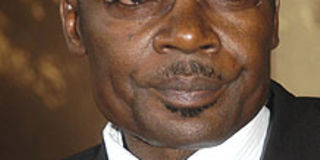Ministers and MPs defy corruption law

What you need to know:
- 2000 teachers face the sack as failure by 28,000 officers to declare wealth tests will to tame sleaze
Cabinet ministers and Members of Parliament are among public officers who have dealt a serious blow to the war on corruption by defying the wealth declaration law.
The Public Service Commission’s annual report shows that 28,000 civil servants did not declare their wealth, a 78 per cent increase over the 2005/06 period.
Already, the Teachers’ Service Commission has issued orders for the sacking of nearly 2,000 teachers next month for failing to obey the law.
A report by the Efficiency Monitoring Unit, an anti-corruption unit in the office of the Prime Minister, says only 57 per cent of MPs have been declaring their wealth.
“The government enforcement of the law designed to help fight corruption is running out of steam as the wealth declaration programme ceases to be an annual event,” said the EMU in a report.
The Public Officer Ethics Act, which requires all public officials to declare their wealth on employment, twice a year while in service and on leaving, was a key plank in the fight against corruption.
The declaration, started six years ago, was intended to discourage public officials from using their positions to amass illegal wealth. However, the wealth of senior government officials, public servants, and MPs has remained a closely guarded secret, as their forms are not available for public scrutiny.
President Kibaki is on record as appealing for the wealth declarations to be made public and has also asked Parliament to amend the Act.
National Assembly Speaker Kenneth Marende said he has reminded MPs twice to declare their wealth but the response has been poor.
“There is need for all public servants to be sensitised on the issue if improvement on wealth declaration is to be achieved this year,” said Mr Marende.
According to the law, an officer who fails to submit clear declarations on the status of his wealth is guilty of an offence punishable by a fine not exceeding Sh1 million or a year’s jail term, or both.
In 2005 to 2006, only 6,596 civil servants did not meet the deadline; 1,371 from the ministries, 3,413 from local authorities, and 1,812 from parastatals.
The latest annual report shows that 18,125 did not submit declaration forms from the 40 ministries, 3,160 from local authorities, and 7,275 from parastatals.
No action appears to have been taken against the defaulters.
Public Service Commission secretary Bernadette Nzioki, however, said the figure in the report was published before the affected civil servants were given the opportunity to defend themselves.
“They defended themselves and their responses were dealt with administratively. The rules demand that their salaries be stopped if the explanations are not convincing,” Mrs Nzioki said.
She defended the PSC, saying it was one of the most effective state institutions which has won the regional medal for competence in on-line service delivery and took the coveted prize from the Africa Association of Public Administration and Management last year.
Declare wealth
“It is not enough to receive and keep the declaration of wealth forms for 30 years without mechanisms to monitor and counter check the truth through an investigative authority. A new body to do that is being worked on and some sections of the law has been amended,” Mrs Nzioki said.
The amendment of the Public Officer Ethics Act also seeks to empower the Kenya Anti-Corruption Commission to determine whether a public officer has contravened the code of conduct and ethics. The agency can now have access to declarations filled by any public servant.
TSC boss Gabriel Lengoiboni last week sent a letter to all provincial directors of education indicating that 1,885 teachers from both primary and secondary schools would lose their jobs.
Eight workers of the teachers’ secretariat will also face the sack on the same grounds.
“All directors of education will be required to give a report on why the teachers failed to declare their wealth and indicate any other disciplinary cases against them,” Mr Lengoiboni said.
Rift Valley Province will be the worst affected when 801 teachers will be sent home followed by Eastern and Nyanza provinces, with 268 and 255 teachers.
According to the head of the TSC Integrity division, Mr N. L. Lolgisoi, wealth declaration was affected by the post-election violence. This may, therefore, explain why the large number of teachers, especially in Rift Valley, failed to comply.
Reports by Benjamin Muindi, Oliver Mathenge and Kenneth Ogosia



